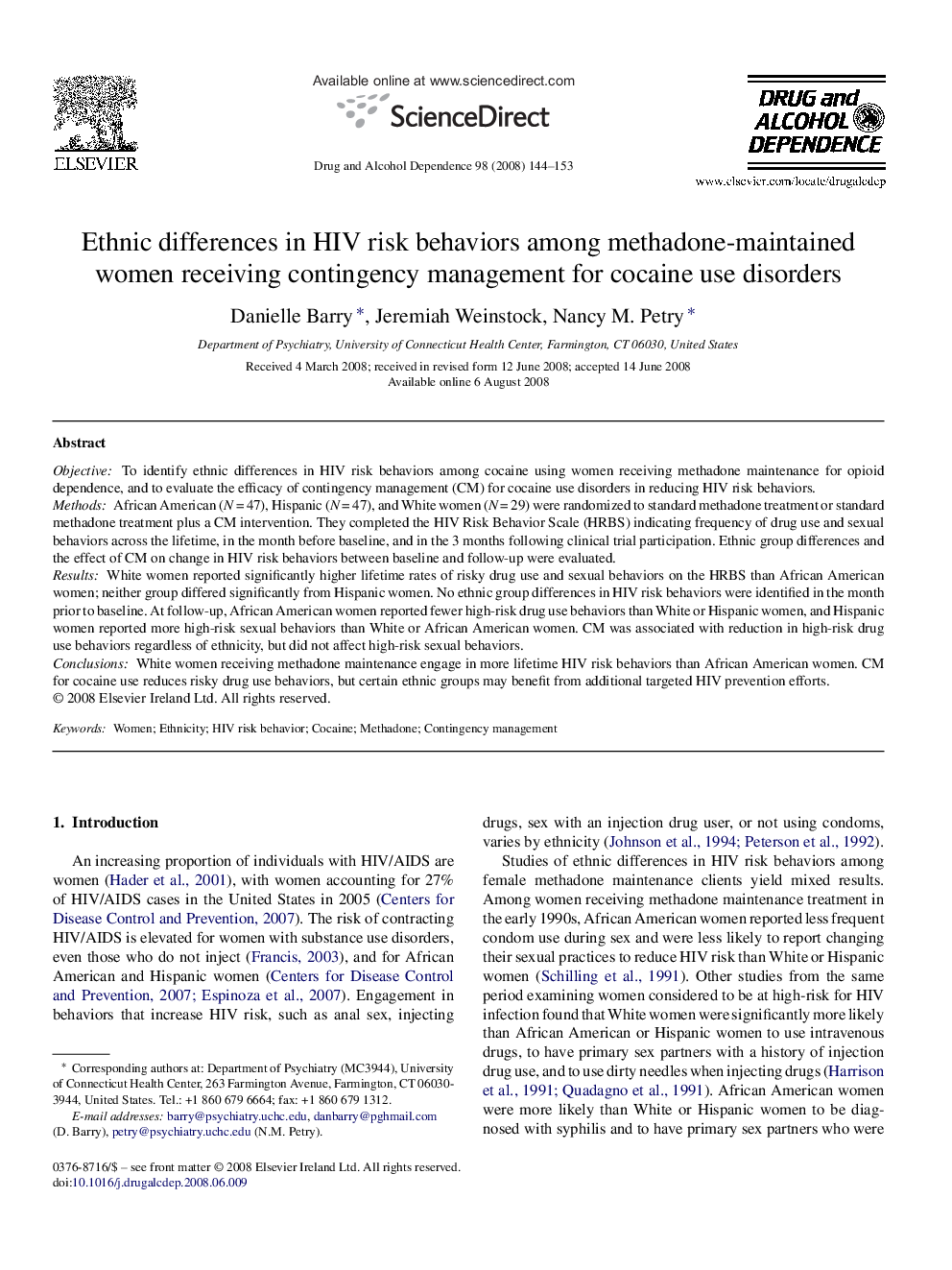| Article ID | Journal | Published Year | Pages | File Type |
|---|---|---|---|---|
| 1071033 | Drug and Alcohol Dependence | 2008 | 10 Pages |
ObjectiveTo identify ethnic differences in HIV risk behaviors among cocaine using women receiving methadone maintenance for opioid dependence, and to evaluate the efficacy of contingency management (CM) for cocaine use disorders in reducing HIV risk behaviors.MethodsAfrican American (N = 47), Hispanic (N = 47), and White women (N = 29) were randomized to standard methadone treatment or standard methadone treatment plus a CM intervention. They completed the HIV Risk Behavior Scale (HRBS) indicating frequency of drug use and sexual behaviors across the lifetime, in the month before baseline, and in the 3 months following clinical trial participation. Ethnic group differences and the effect of CM on change in HIV risk behaviors between baseline and follow-up were evaluated.ResultsWhite women reported significantly higher lifetime rates of risky drug use and sexual behaviors on the HRBS than African American women; neither group differed significantly from Hispanic women. No ethnic group differences in HIV risk behaviors were identified in the month prior to baseline. At follow-up, African American women reported fewer high-risk drug use behaviors than White or Hispanic women, and Hispanic women reported more high-risk sexual behaviors than White or African American women. CM was associated with reduction in high-risk drug use behaviors regardless of ethnicity, but did not affect high-risk sexual behaviors.ConclusionsWhite women receiving methadone maintenance engage in more lifetime HIV risk behaviors than African American women. CM for cocaine use reduces risky drug use behaviors, but certain ethnic groups may benefit from additional targeted HIV prevention efforts.
